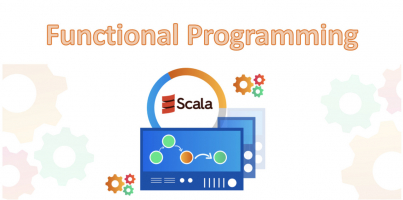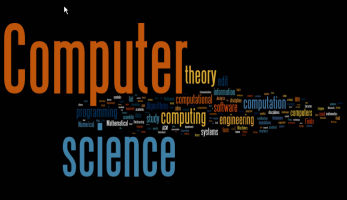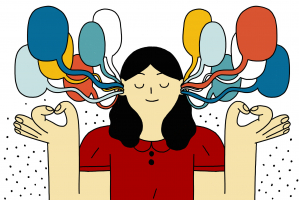Top 10 Best Books On Cognitive Biases
A cognitive bias is a systematic pattern of judgmental divergence from norm or rationality. Individuals construct their own "subjective world" based on how ... read more...they perceive the input. If you're interested in learning more about human biases and how we may make better judgments, here's a brief collection of the best books on cognitive biases.
-
Predictably Irrational, The Upside of Irrationality, and The (Honest) Truth About Dishonesty are all best-sellers by Dan Ariely. He founded the Center for Advanced Hindsight and is the James B. Duke Professor of Psychology and Behavioral Economics at Duke University. His work has appeared in the New York Times, Wall Street Journal, Washington Post, Boston Globe, and other publications. He and his family live in North Carolina.
Why do our headaches last after a one-cent aspirin but go away with a fifty-cent aspirin? Why do we splurge on a sumptuous meal then clip coupons to save $25 on a can of soup? When it comes to making life decisions, we believe we are making sound, sensible decisions. But are we sure?
Dan Ariely challenges the widely held belief that humans behave in fundamentally reasonable ways in this freshly revised and extended edition of his landmark New York Times bestseller. We routinely overpay, underestimate, and postpone in everything we do, from drinking coffee to losing weight, from buying a car to choosing a romantic partner. However, these erroneous actions are neither random nor senseless. They're methodical and predictable, which causes us to be predictably irrational.
Author: Dr. Dan Ariely
Link to buy: https://www.amazon.com/Predictably-Irrational-Revised-Expanded-Decisions/dp/0061353248/
Ratings: 4.6 out of 5 stars (from 5405 reviews)
Best Sellers Rank: #5,609 in Books
#2 in Business Pricing
#14 in Marketing & Consumer Behavior
#22 in Popular Culture in Social Sciences
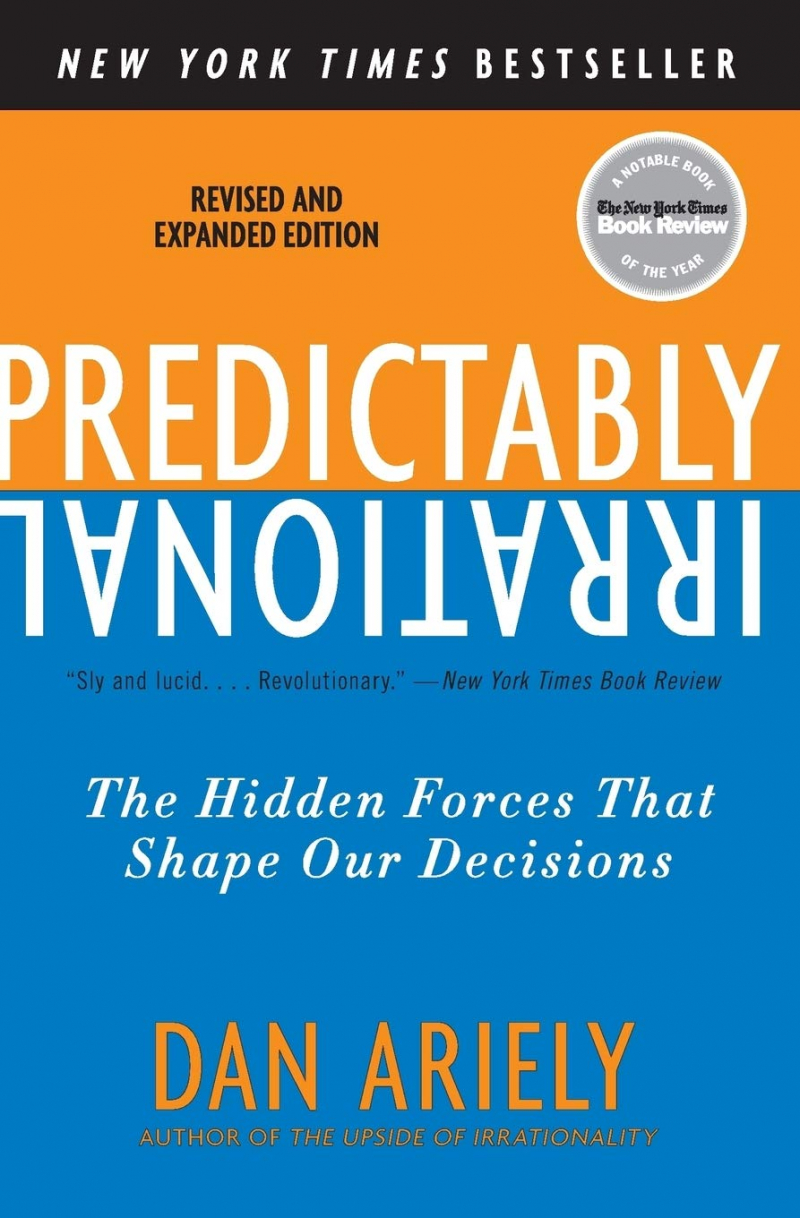
https://www.amazon.com/ 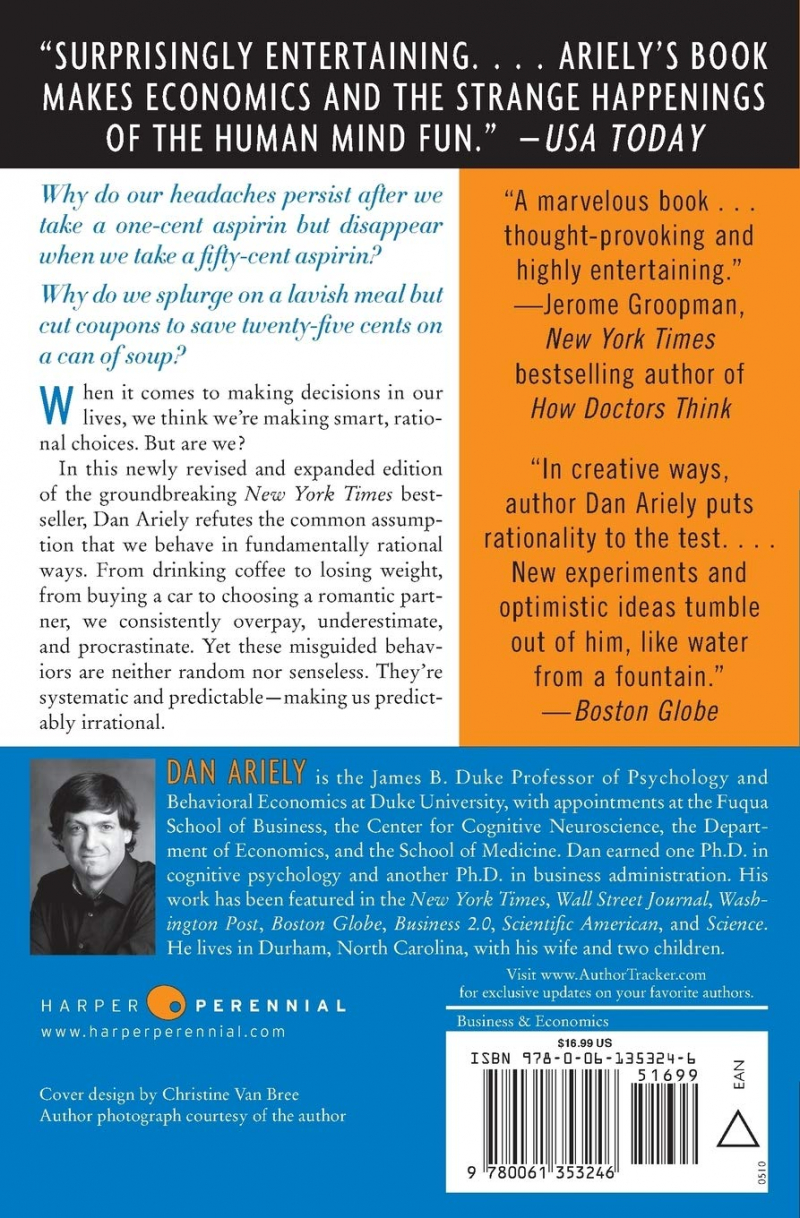
https://www.amazon.com/ -
Annie Duke is a World Series of Poker bracelet winner, the 2004 Tournament of Champions champion, and the only female winner of the NBC National Poker Heads Up Championship. As a professional speaker and decision strategist, she combines her poker knowledge with her PhD study in cognitive psychology at UPenn. She is the founder of How I Decide, a non-profit that develops courses and resources to help underserved middle school students improve their decision-making and critical thinking skills.
With 26 seconds remaining and behind by four at the Patriots' one-yard line in Super Bowl XLIX, Seahawks coach Pete Carroll went for a pass instead of a handoff to his star running back. The pass was intercepted, and the Seahawks were defeated. It was dubbed "the dumbest play in history" by critics. Was the call truly that bad? Or did Carroll execute a terrific move that was thwarted by poor luck?
Even the finest option does not always result in the best outcome. There is always an element of chance that you cannot control, as well as information that is hidden from view. So, the secret to long-term success (and avoiding death by anxiety) is to think in terms of bets: "How certain am I? What are the various outcomes that could occur? Which decision has the best chance of success? Did I fall into the unlucky 10% on a method that succeeds 90% of the time? Is my success due to dumb luck rather than wise decision-making?"
In Thinking in Bets, Annie Duke, a former World Series of Poker winner turned business consultant, uses examples from business, sports, politics, and (of course) poker to teach readers how to embrace uncertainty and make smarter decisions. In a world that emphasizes and even promotes the appearance of certainty, most people find it difficult to express "I'm not sure." Professional poker players, on the other hand, are aware that good judgments do not always result in good outcomes, and bad ones do not always result in terrible outcomes.
You'll be less subject to reactionary emotions, knee-jerk biases, and detrimental patterns in your decision making if you alter your thinking from a desire for certainty to a goal of accurately assessing what you know and what you don't. In the long term, you'll grow more confident, calm, compassionate, and successful.
Author: Annie Duke
Link to buy: https://www.amazon.com/Thinking-Bets-Making-Smarter-Decisions/dp/0735216355/
Ratings: 4.4 out of 5 stars (from 2351 reviews)
Best Sellers Rank: #18,600 in Books
#50 in Strategic Business Planning
#58 in Systems & Planning
#89 in Medical Cognitive Psychology
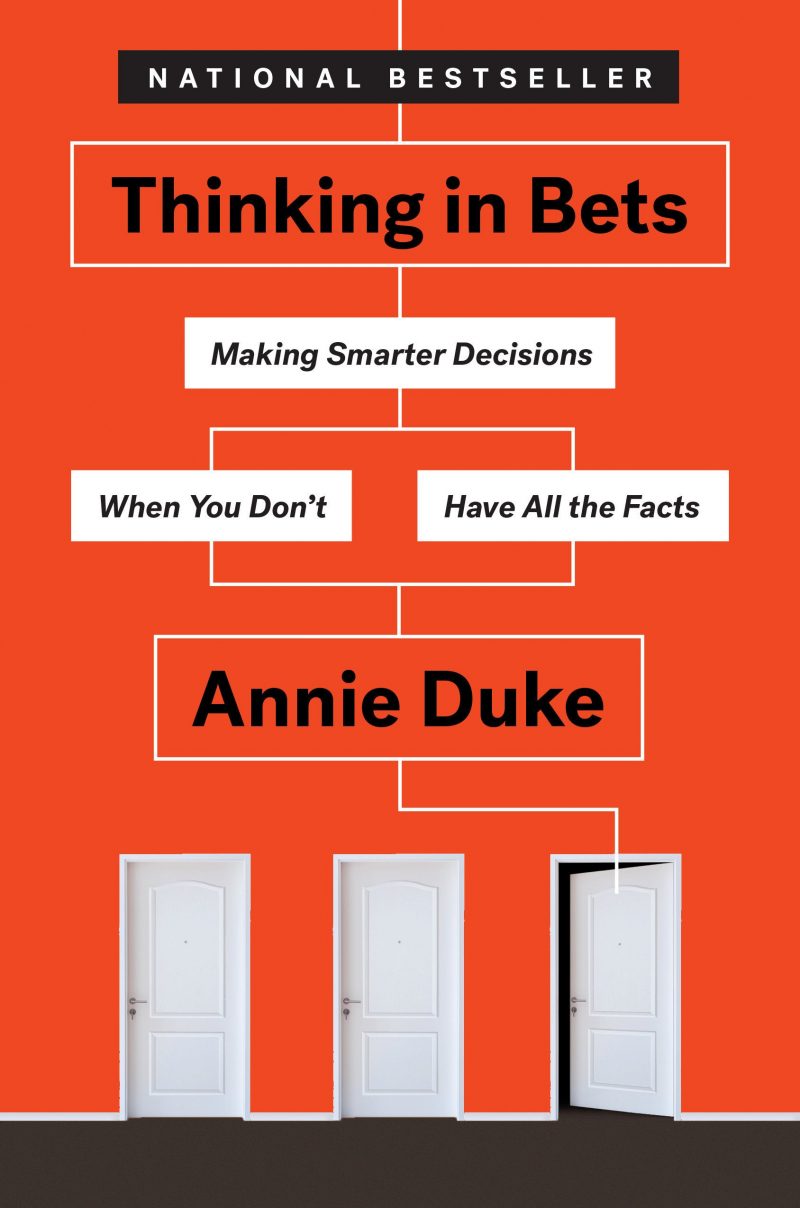
https://www.amazon.com/ 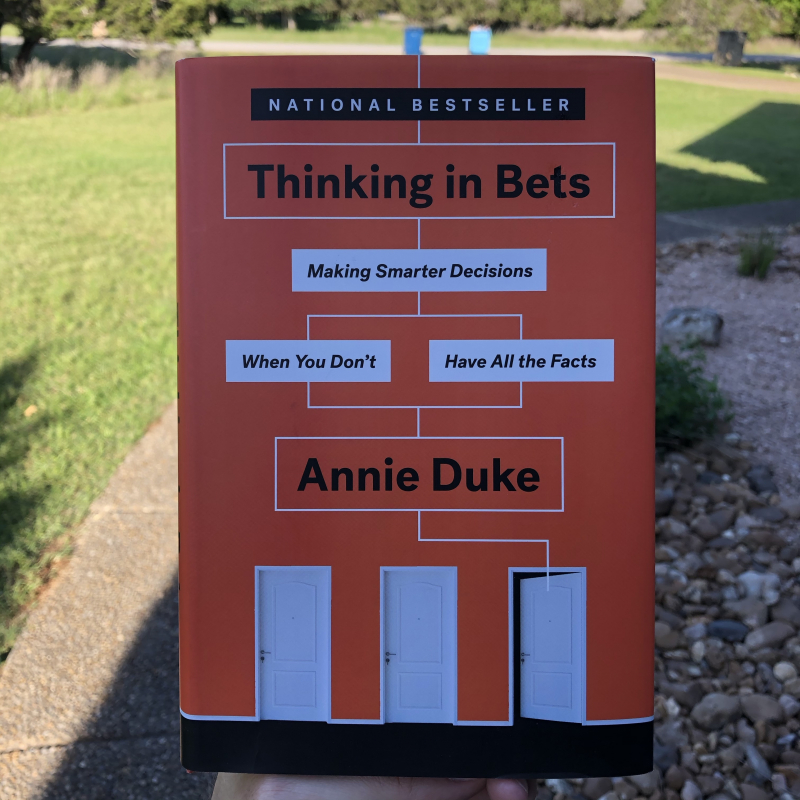
thedeckleedge.com -
Poor Charlie Munger's wit and wisdom are captured in Charlie's Almanack, which includes his presentations, lectures, and public commentary. It was also prepared and compiled with the encouragement and participation of both Charlie Munger and Warren Buffett. So settle into your favorite reading chair and enjoy Charlie Munger's distinct sense of humour, wit, and insight into the worlds of business, investing, and life itself. You are about to start on an astonishing trip toward improved investment, decision making, and thinking about the world and life in general, with Charlie himself as your guide. Charlie's distinct worldview, which he refers to as a "multidisciplinary" approach, is a self-developed model for clear and straightforward thinking that is far from simplistic. Charlie demonstrates his knowledge, wit, integrity, and rhetorical flair throughout the novel. He identifies references ranging from antique orators through eighteenth- and nineteenth-century European literati to pop culture.
Poor Charlie's Almanack is one of the best books on cognitive biases. The following are three key takeaways from the book:
- Charlie knows no wise people who do not read constantly. But it is more than just reading; one must collect ideas and act on them. Most individuals do not recognize ideas, and if they do, they are unsure what to do with them.
- Charlie does not believe in diversification when it comes to investing. His advice is to pick three good firm stocks and invest accordingly. Interesting idea, given that most financial gurus usually advise the opposite.
- Self-pity is always counter-productive; it is the incorrect way of thinking. And avoiding it gives you a significant advantage over everyone else, or almost everyone else, because self-pity is a common response. You can also teach yourself out of it.
Author: Charles T. Munger
Link to buy: https://www.amazon.com/Poor-Charlies-Almanack-Charles-Expanded/dp/1578645018/
Ratings: 4.8 out of 5 stars (from 1112 reviews)
Best Sellers Rank: #10,107 in Books
#114 in Investing (Books)
#1,390 in Reference (Books)
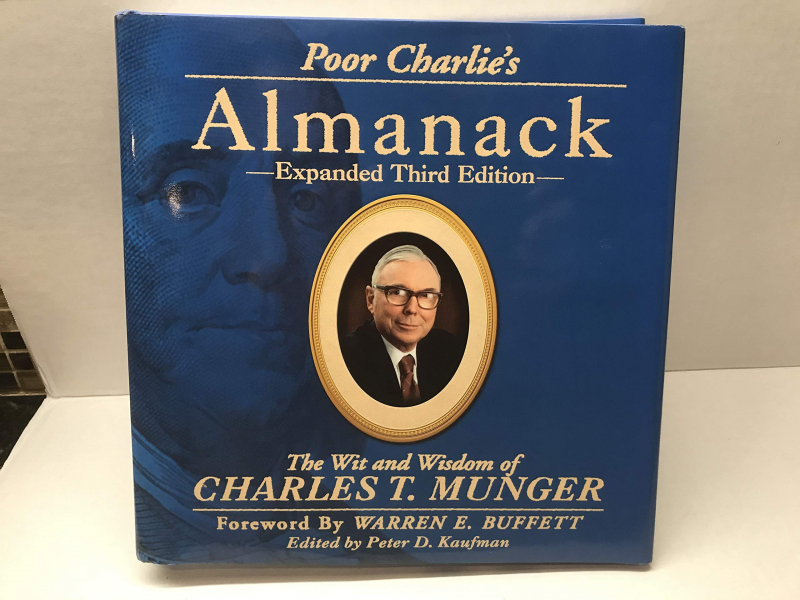
https://www.amazon.com/ 
https://www.amazon.com/ -
Daniel Kahneman is the Eugene Higgins Professor of Psychology Emeritus and a professor of public affairs at Princeton University's Woodrow Wilson School of Public and International Affairs. He was awarded the Nobel Prize in Economic Sciences in 2002 for his groundbreaking work on decision-making with Amos Tversky. He wrote the international best-seller Thinking, Fast and Slow.
System 1 is quick, intuitive, and emotional, whereas System 2 is slower, more deliberate, and rational. The impact of overconfidence on corporate strategies, the difficulty of predicting what will make us happy in the future, and the profound effect of cognitive biases on everything from playing the stock market to planning our next vacation can only be understood by understanding how the two systems shape our judgments and decisions.
Kahneman engages the reader in a spirited discussion about how we think, revealing where we may and cannot trust our intuitions and how we can reap the benefits of slow thinking. He provides practical and illuminating insights into how we make decisions in both our professional and personal lives, as well as how we can employ various tactics to avoid the mental blunders that frequently get us into difficulty. Thinking, Fast and Slow was named one of the ten best books of 2011 by The New York Times Book Review and won the National Academy of Sciences Best Book Award and the Los Angeles Times Book Prize.
Author: Daniel Kahneman
Link to buy: https://www.amazon.com/Thinking-Fast-Slow-Daniel-Kahneman/dp/0374275637/
Ratings: 4.6 out of 5 stars (from 27929 reviews)
Best Sellers Rank: #4,425 in Books
#25 in Medical Cognitive Psychology
#29 in Popular Applied Psychology
#40 in Cognitive Psychology (Books)
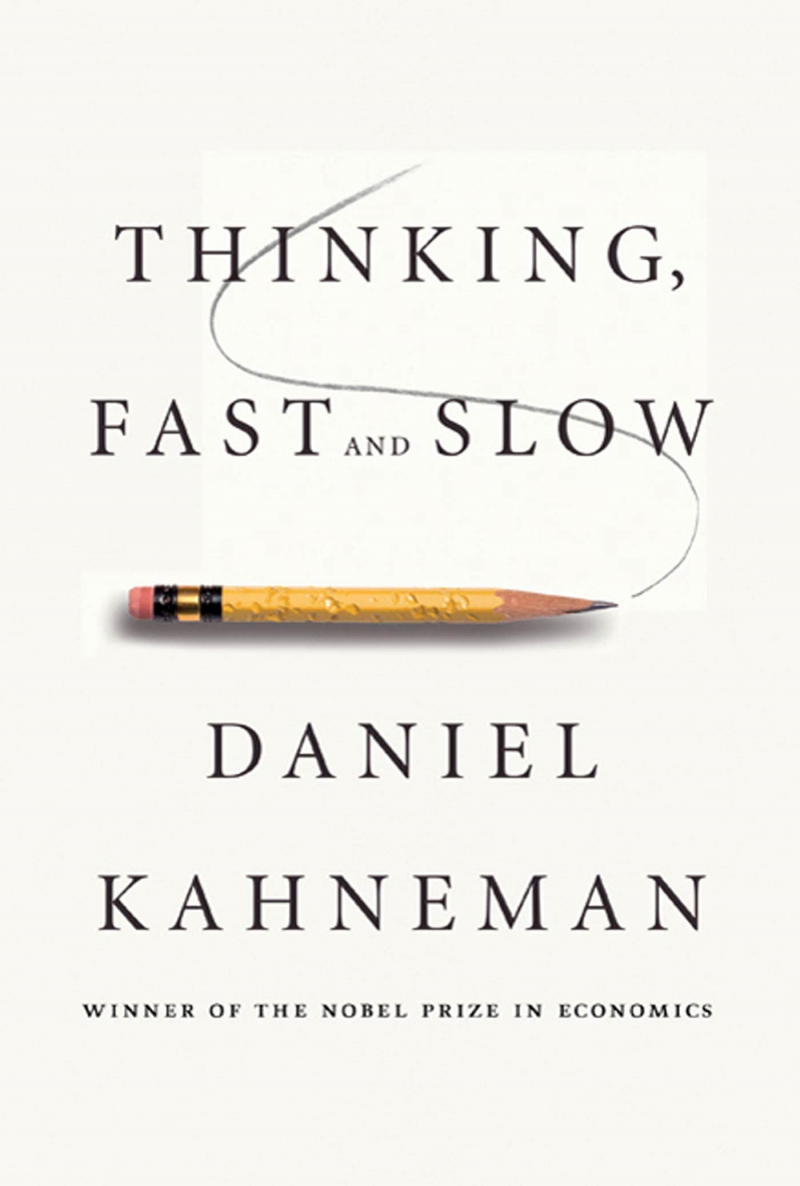
https://www.amazon.com/ 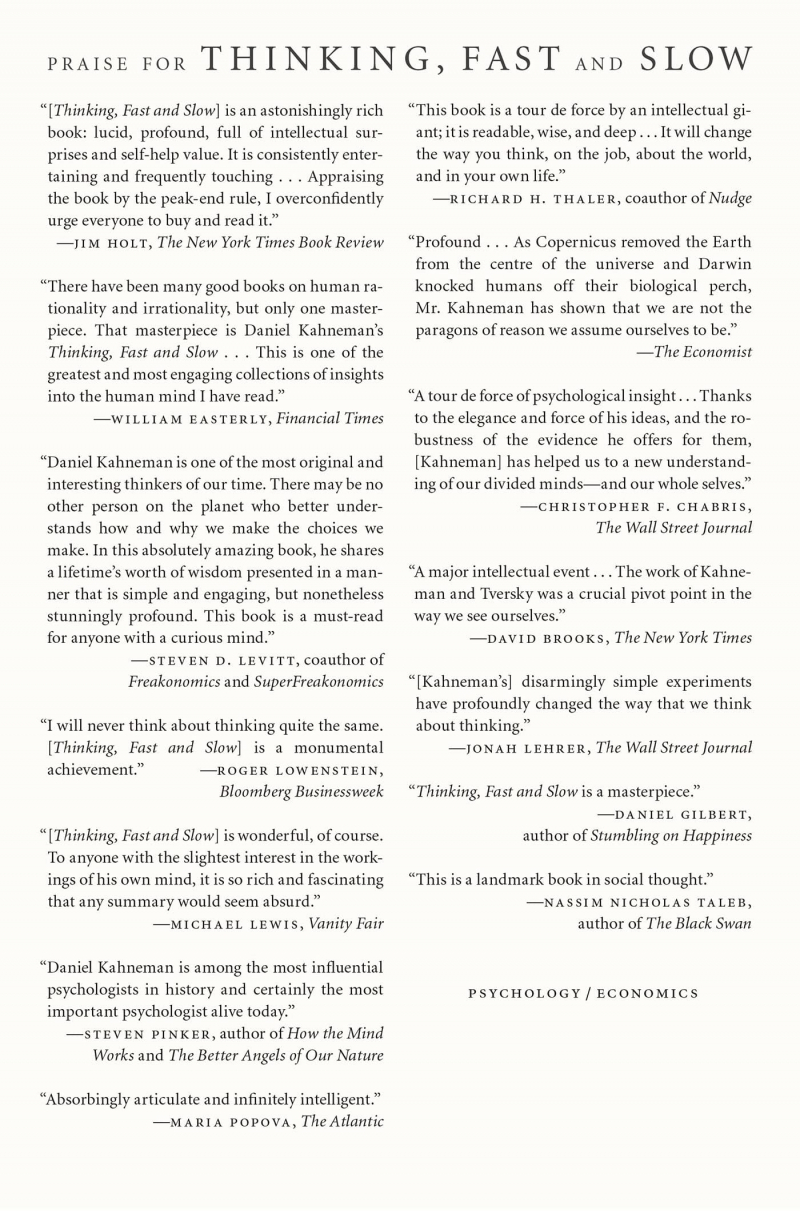
https://www.amazon.com/ -
Nassim Nicholas Taleb has spent his life studying uncertainty, probability, and knowing. He worked as a businessman and quantitative trader for nearly two decades until becoming a full-time philosophical essayist and academic researcher in 2006.
Fooled by Randomness, now in a stunning new hardback edition, is the viral sensation that will revolutionize the way you think about business and the world. Nassim Nicholas Taleb, an experienced trader, recognized risk expert, polymathic scholar, erudite raconteur, and New York Times bestselling author of The Black Swan, has created a modern classic that challenges our assumptions about chance and talent.
This book is about luck, or more specifically, how we perceive and cope with luck in our daily lives and businesses. Set against the backdrop of the most visible forum where luck is mistaken for skill—the world of trading—Fooled by Randomness offers enthralling insight into one of the least understood variables in all of our lives. The author discusses major intellectual themes relating to the underestimate of the power of serendipity on our lives in an interesting storytelling approach.
Among the best books on cognitive biases, the book features a cast of individuals, some of whom have realized the significance of chance in their own way: baseball hero Yogi Berra; philosopher of knowledge Karl Popper; the ancient world's wisest man, Solon; current financier George Soros; and Greek voyager Odysseus. We also encounter the mythical Nero, who appears to understand the significance of chance in his professional life but succumbs to his own superstitious folly.
The most famous character, however, stays unnamed—the lucky fool who happens to be in the right place at the right time—he personifies the "survival of the least fit." Such people attract committed followers who trust their guru's insights and tactics. But no one can duplicate what happens by accident.
Can we tell the difference between a lucky charlatan and a true visionary? Is it necessary to always try to find nonexistent messages in random events? It may be hard to protect ourselves from the whims of the goddess Fortuna, but we can be better prepared after reading Fooled by Randomness.
Author: Nassim Nicholas Taleb
Link to buy: https://www.amazon.com/Fooled-Randomness-Hidden-Markets-Incerto/dp/1400067936?tag=tcl0a-20
Ratings: 4.4 out of 5 stars (from 3034 reviews)
Best Sellers Rank: #91,616 in Books
#60 in Free Will & Determinism Philosophy
#68 in Business Statistics
#110 in Statistics (Books)
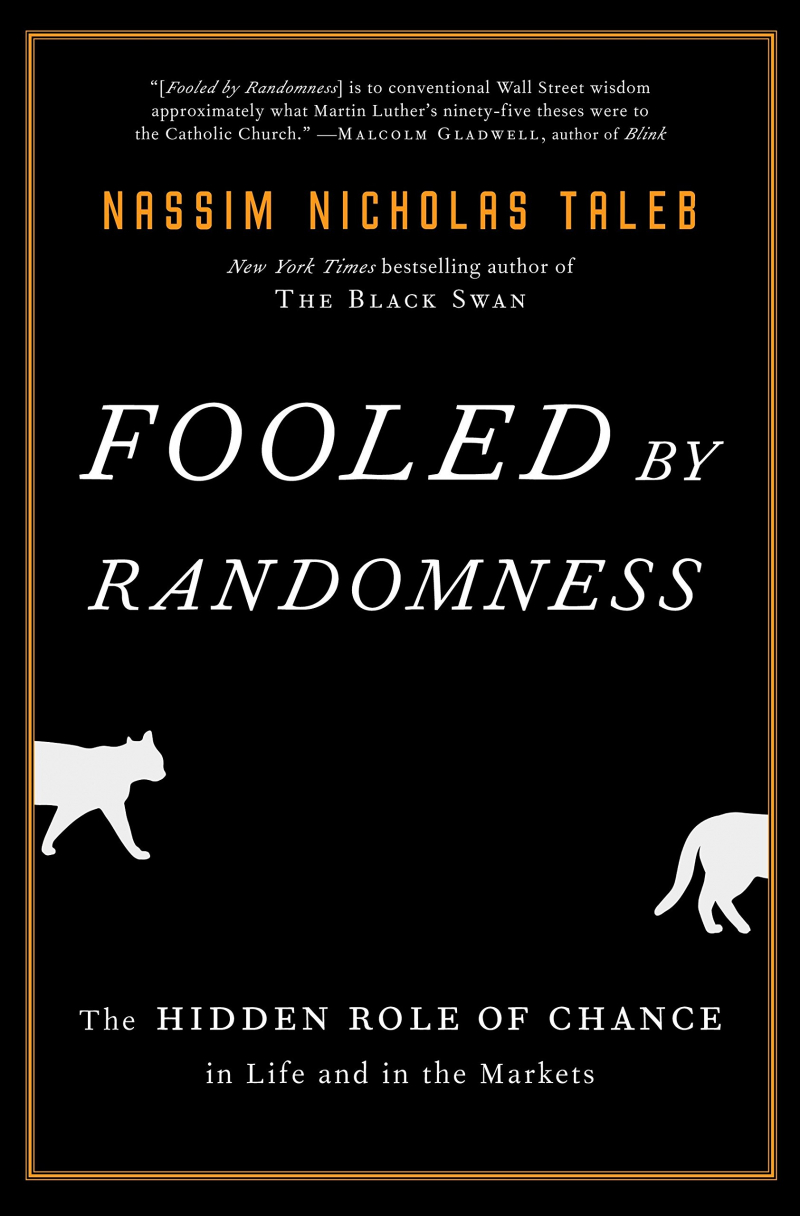
https://www.amazon.com/ 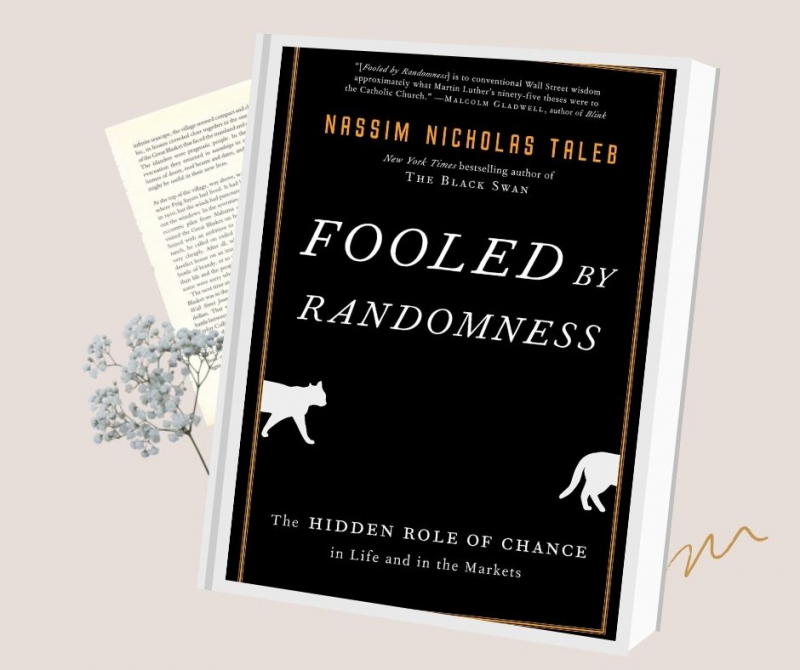
https://www.amazon.com/ -
Ray Dalio is the Founder, Co-CIO, and Member of the Bridgewater Board of Directors, which has grown to become the world's largest and best-performing hedge fund during the previous four decades. Dalio has been named to both the Time 100 list of the world's most important people and the Bloomberg Markets list of the 50 most influential individuals. In addition, he is the #1 New York Times bestselling author of Principles, Principles for Navigating Big Debt Crisis, and Principles for Dealing with the Changing World Order. He resides in Connecticut with his family.
Ray Dalio launched Bridgewater Associates in 1975 from his two-bedroom apartment in New York City. Bridgewater has made more money for its clients than any other hedge fund in history, according to Fortune magazine, and has grown to become the sixth most important private firm in the United States. Dalio has been included to Time magazine's list of the world's 100 most influential people. Dalio uncovered a set of distinct ideas along the road that have resulted in Bridgewater's extraordinarily effective culture, which he characterizes as "an idea meritocracy that aspires to achieve meaningful work and meaningful relationships through radical transparency." These values, rather than anything unique to Dalio, who grew up in a middle-class Long Island neighborhood, he says, are the driving force behind his success.
Dalio explains what he's learned throughout the course of his incredible career in Principles. He contends that life, management, economics, and investing can all be systematized and comprehended like machines. Dalio lays out the most successful ways for individuals and companies to make decisions, approach difficulties, and develop strong teams in the book's hundreds of practical lessons, which are structured around his cornerstones of "radical truth" and "radical transparency." He also discusses the unique methods that the corporation employs to bring the idea of meritocracy to life, such as developing "baseball cards" for all employees that condense their strengths and shortcomings and using computational decision-making algorithms to make believability-weighted judgements. While the book is full of unique ideas for corporations and institutions, Principles also provides a clear, uncomplicated method to decision-making that Dalio believes anybody can adopt, regardless of their goals.
Here, from a man dubbed "the Steve Jobs of investing" and "the philosopher king of the financial universe" (CIO magazine), is a once-in-a-lifetime opportunity to learn verified advice unlike anything else available in the business press.
Author: Ray Dalio
Link to buy: https://www.amazon.com/gp/aw/d/1501124021/
Ratings: 4.6 out of 5 stars (from 11349 reviews)
Best Sellers Rank: #454 in Books
#2 in Business & Organizational Learning
#6 in Introduction to Investing
#8 in Business Decision Making
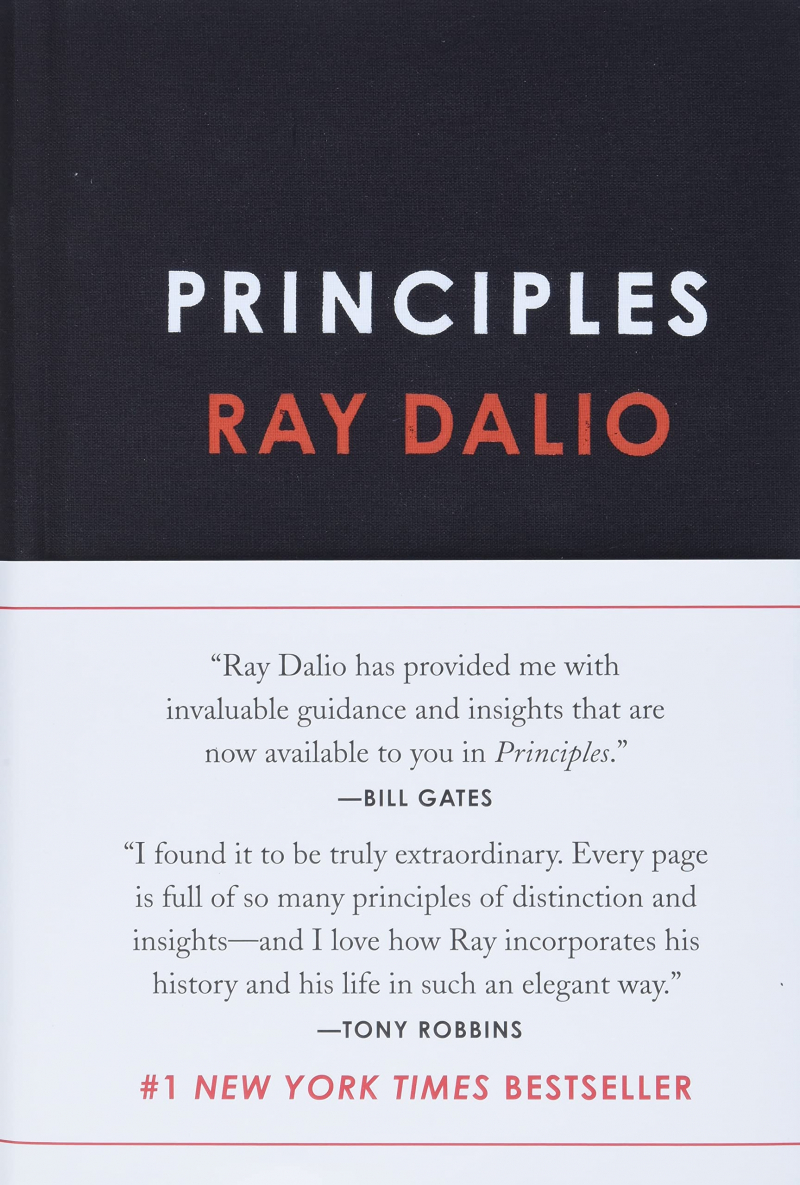
https://www.amazon.com/ 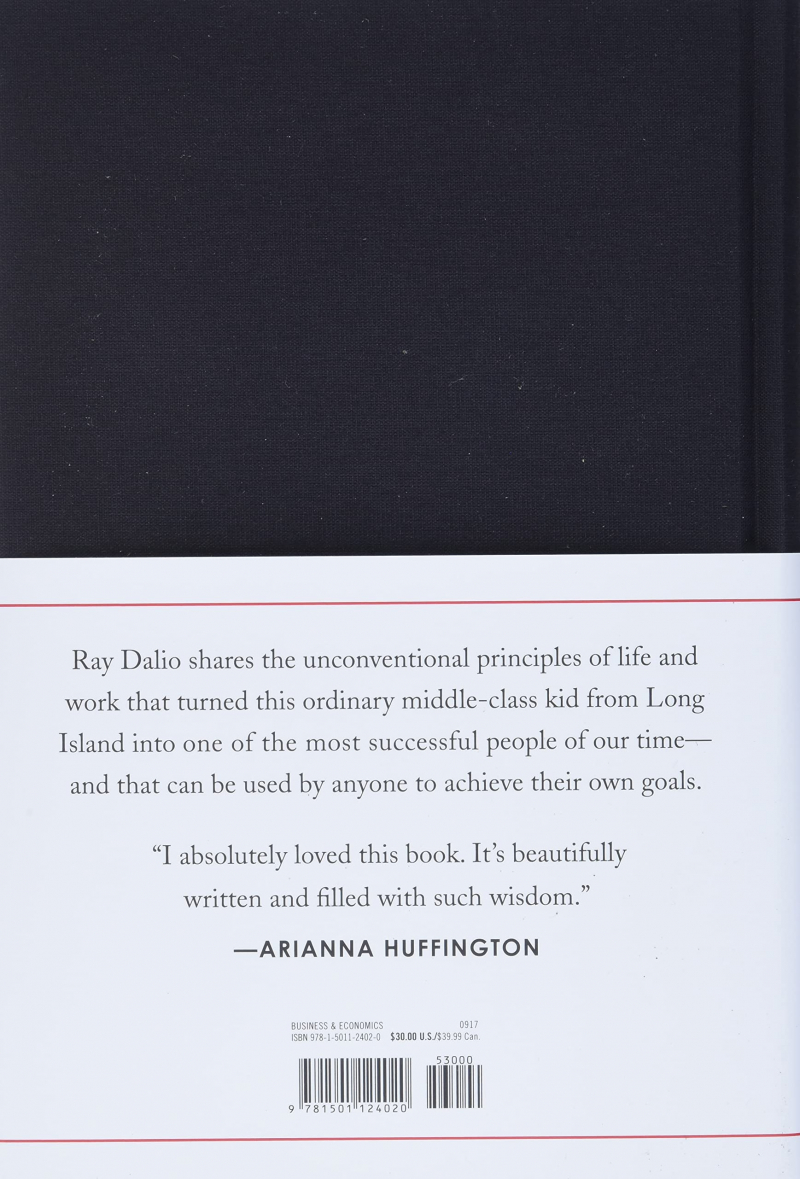
https://www.amazon.com/ -
Steven Johnson is the New York Times bestselling author of ten books, including Wonderland, How We Got Here, Where Good Ideas Come From, The Invention of Air, The Ghost Map, and Everything Bad Is Good for You. He is the host and co-creator of the PBS and BBC series How We Got to Now, as well as the inventor of several notable websites.
Big, life-altering decisions matter far more than day-to-day ones, and they are also the most difficult: where to live, whom to marry, what to believe, whether to start a business, how to end a war. There is no one-size-fits-all solution to these kinds of quandaries.
Steven Johnson's book Where Good Ideas Come From influenced creative people all over the world to think about creativity in fresh ways. He reveals excellent techniques for honing the vital talent of complicated decision-making in Farsighted. While you can't replicate a once-in-a-lifetime decision, you can replicate expert decision-makers' deliberative strategies. These professionals aren't merely brilliant strategists who lead large corporations or negotiate high-level diplomacy. They are the writers who reveal the complexities of their characters' inner lives, the city authorities who ensure long-term water supplies, and the scientists who face future difficulties that most of us haven't ever considered. The wisest decision-makers do not follow their instincts. Their success is dependent on their capacity to think creatively and productively about all of their possibilities.
Johnson discusses how we can most effectively approach the choices that can chart the fate of a life, an organization, or a civilization through fascinating stories that offer surprising insights. Farsighted will assist you in imagining your potential futures and appreciating the subtle brilliance of the decisions that built our larger social history.
Author: Steven Johnson
Link to buy: https://www.amazon.com/dp/1473693667
Ratings: 4.3 out of 5 stars (from 195 reviews)
Best Sellers Rank: #242,831 in Books
#469 in Business Mentoring & Coaching (Books)
#952 in Business Decision Making
#2,158 in Self-Esteem (Books)
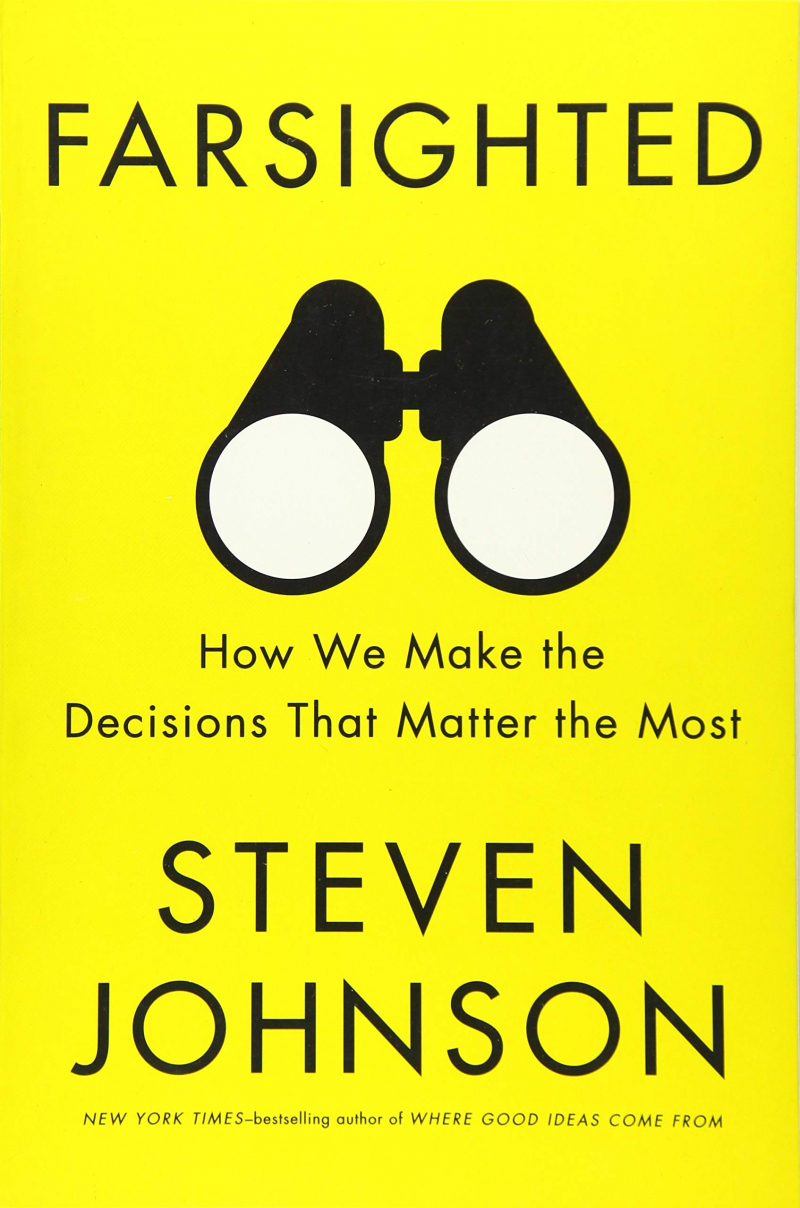
amazon.co.uk 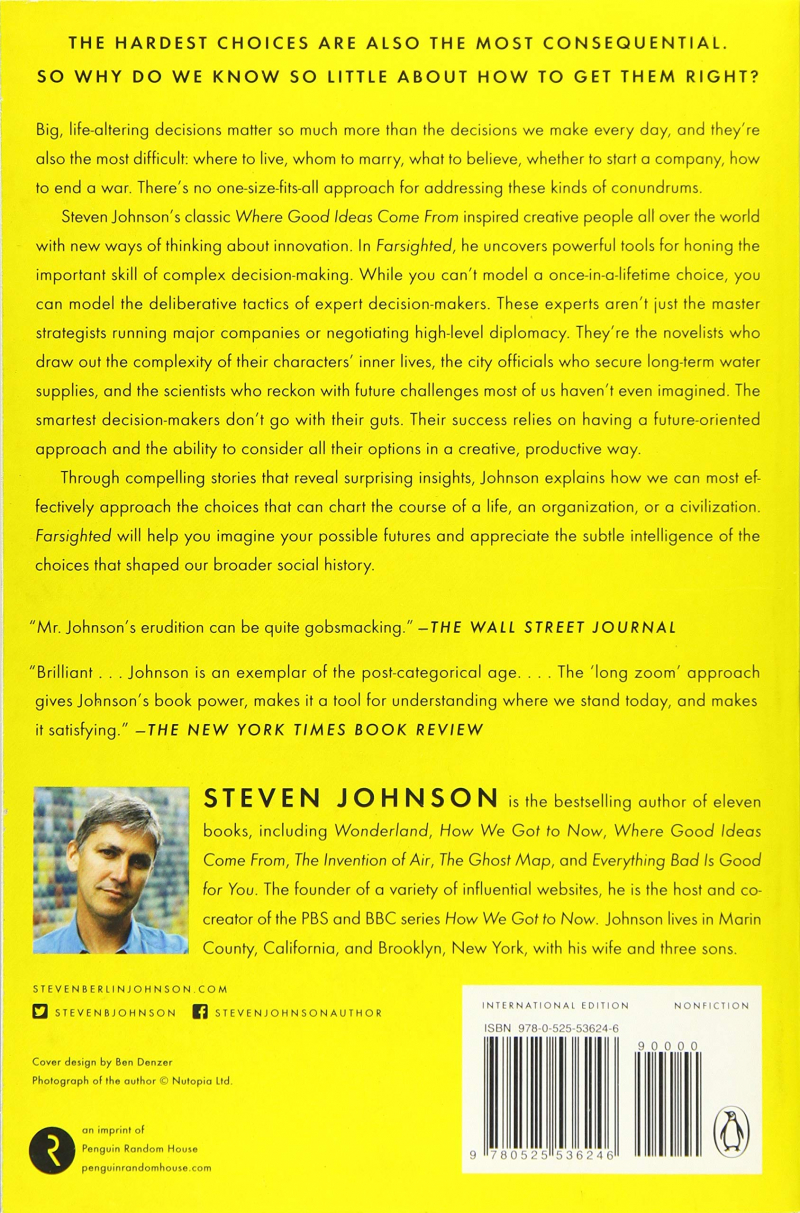
amazon.co.uk -
James O'Brien is a radio presenter and writer. His work has featured in publications ranging from the Times to the Daily Mirror. He has hosted BBC Two's Newsnight and his own ITV daytime discussion program, O'Brien. His regular current events phone-in show on LBC is heard by 1.2 million people each week. How to Be Right, his most recent book, was a Sunday Times Best Seller.
In his best-selling How To Be Right, James provides an energizing guide to conversing with those who hold opposing views. Despite this, he is frequently asked, 'If you're so sure about everything, haven't you ever changed your mind?'
The ability to modify our beliefs may be the most crucial power we have in an age of us vs. them, tribal loyalties, and severe differences. James' focus moves from talking to other people to how you talk to yourself about what you truly think in this intimate, personal new book. Across a dizzying mix of large themes, cultural questions, and political hot potatoes, James admits where he has changed his view, explains what convinced him, and demonstrates why we all need to kick the tyres of our opinions, verify our assumptions, and make sure we truly believe what we believe.
Among the best books on cognitive biases, How Not To Be Wrong is filled with revelations, outrage, conversations, and lots of humour, and is colored with stories of changing minds from incredible guests on his podcasts and callers to his radio show. It spans big ideas like press regulation and Brexit, as well as playful subjects like football and dog-ownership.
Because, in an increasingly divided society, if you can't alter your own opinion, you'll never be able to change anyone else's.
Author: James O'Brien
Link to buy: https://www.amazon.com/dp/0753557703
Ratings: 4.6 out of 5 stars (from 1654 reviews)
Best Sellers Rank: #1,421,850 in Books
#12,198 in Political Ideologies & Doctrines (Books)
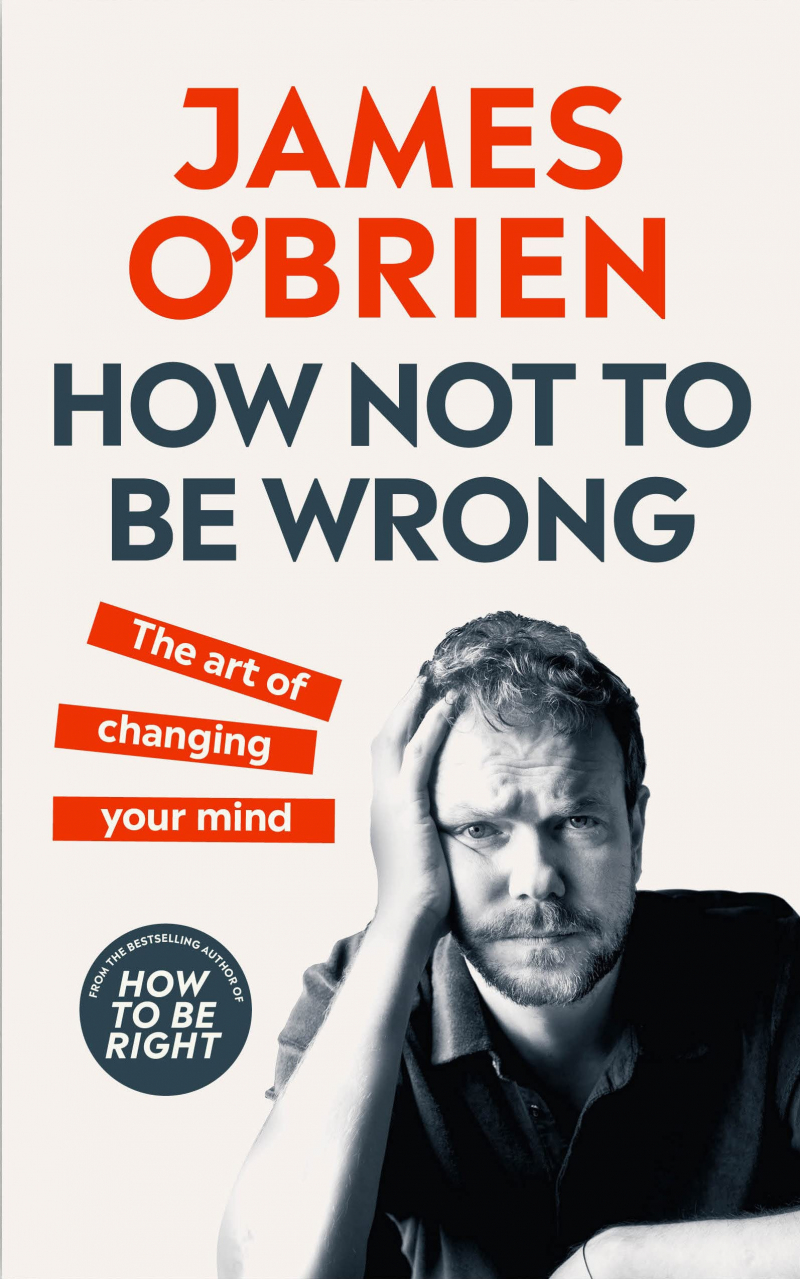
https://www.amazon.com/ 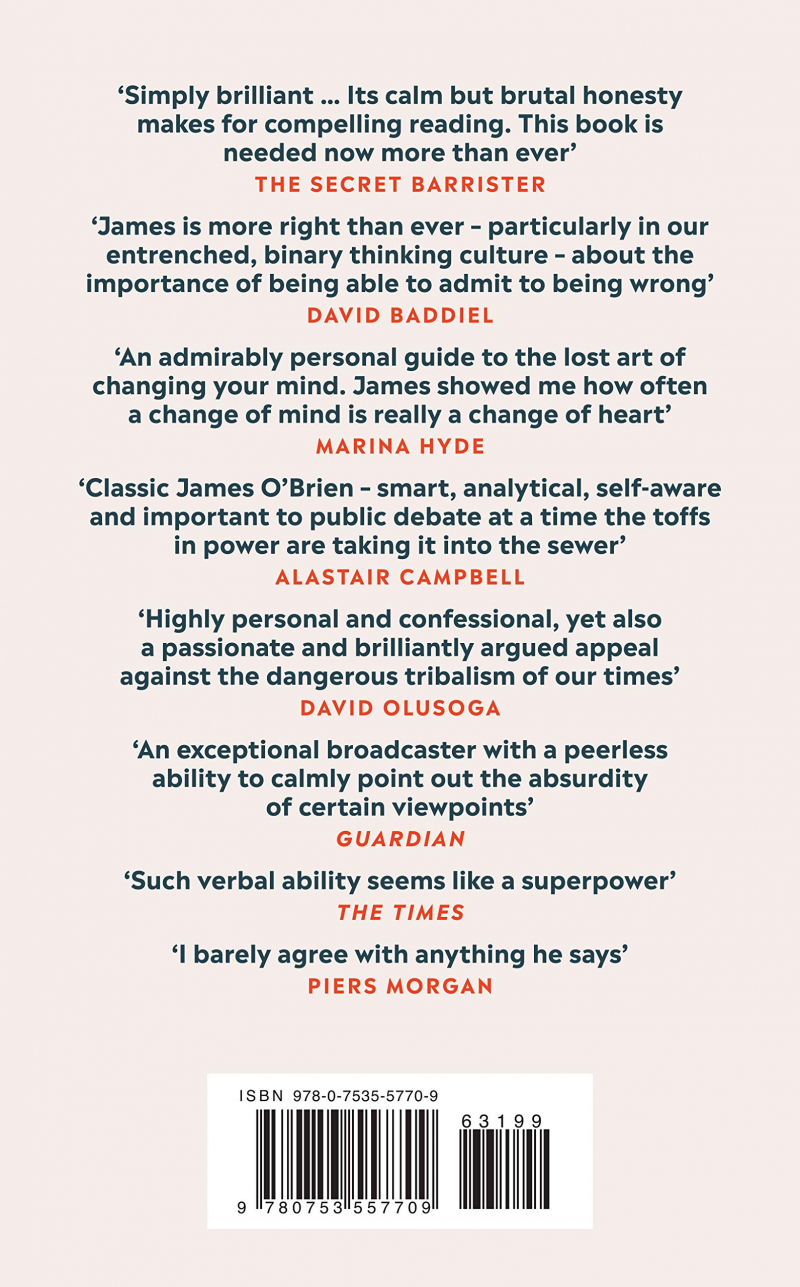
https://www.amazon.com/ -
Adam Grant is an organizational psychologist at Wharton, where he has been named the best professor seven years in a row. He is a TED speaker, his books have sold millions of copies, his presentations have been viewed over 25 million times, and his podcast WorkLife with Adam Grant has topped the charts.
Intelligence is commonly defined as the ability to think and learn, but in today's quickly changing world, another set of cognitive skills may be more important: the ability to rethink and unlearn. In our daily lives, far too many of us prefer the security of certainty over the discomfort of doubt. We like to hear thoughts that make us feel good rather than ideas that make us think hard. Disagreement is viewed as a danger to our egos rather than an opportunity to learn. We surround ourselves with those who agree with our views while we should seek out those who question our thinking. As a result, our beliefs become brittle before our bones. We think too much like preachers defending our sacred ideas, prosecutors proving the other side wrong, and politicians advertising for votes, and too little like scientists seeking truth. Intelligence is not a panacea; in fact, being brilliant at thinking can make us worse at rethinking. The brighter we are, the more oblivious we might become to our own limitations.
Adam Grant, an organizational psychologist, is an adept in opening other people's minds—and our own. He makes it one of his guiding principles as Wharton's top-rated professor and the bestselling author of Originals and Give and Take to fight like he's right but listen like he's wrong. He studies how we might embrace the delight of being incorrect, bring complexity to contentious dialogues, and create schools, workplaces, and communities of lifelong learners using bold ideas and rigorous evidence. You'll discover how an international debate champion wins fights, a Black musician gets white supremacists to quit hatred, a vaccine whisperer persuades worried parents to immunize their children, and Adam persuades Yankees fans to root for the Red Sox. Think Again demonstrates that we do not have to believe or internalize everything we think or feel. It's an encouragement to let go of beliefs that no longer serve us well and to value mental flexibility above stubborn consistency. Knowing what we don't know is wisdom, if knowledge is power.
Author: Adam Grant
Link to buy: https://www.amazon.com/dp/1984878107
Ratings: 4.6 out of 5 stars (from 10901 reviews)
Best Sellers Rank: #400 in Books
#4 in Popular Psychology Personality Study
#8 in Cognitive Psychology (Books)
#17 in Motivational Management & Leadership
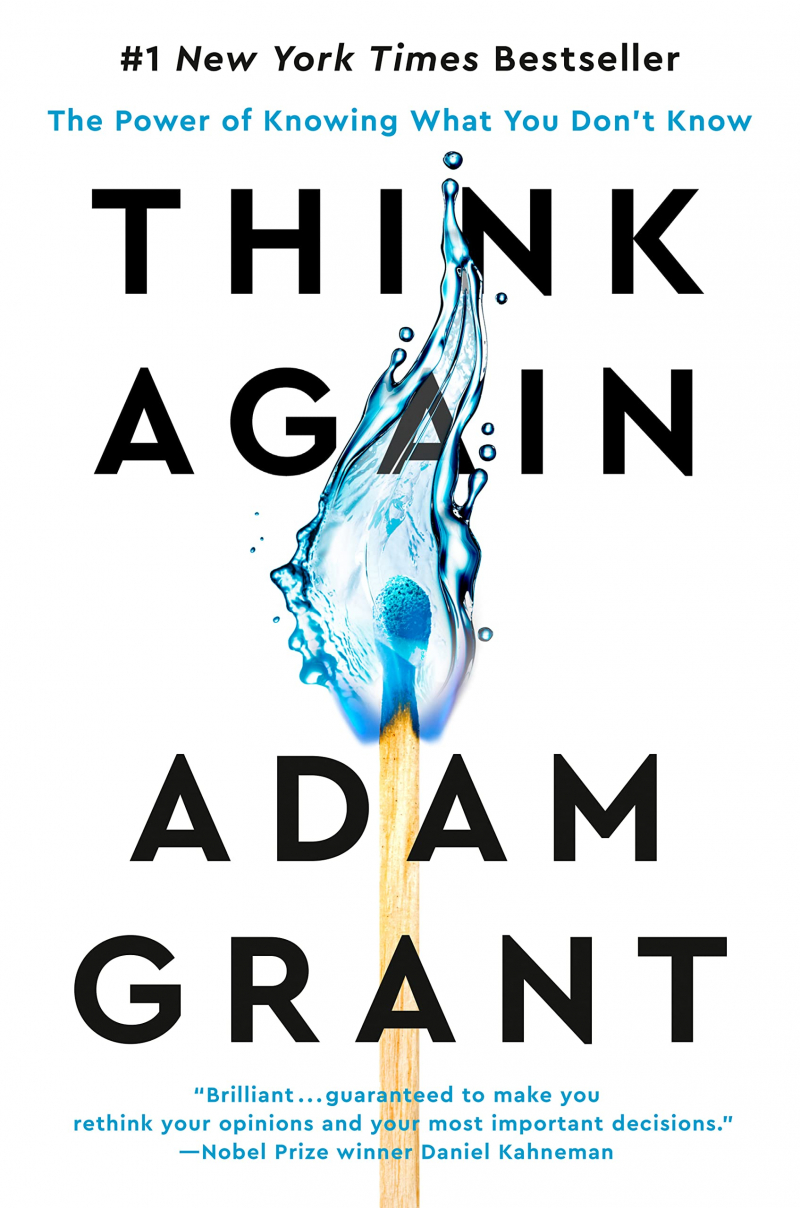
https://www.amazon.com/ 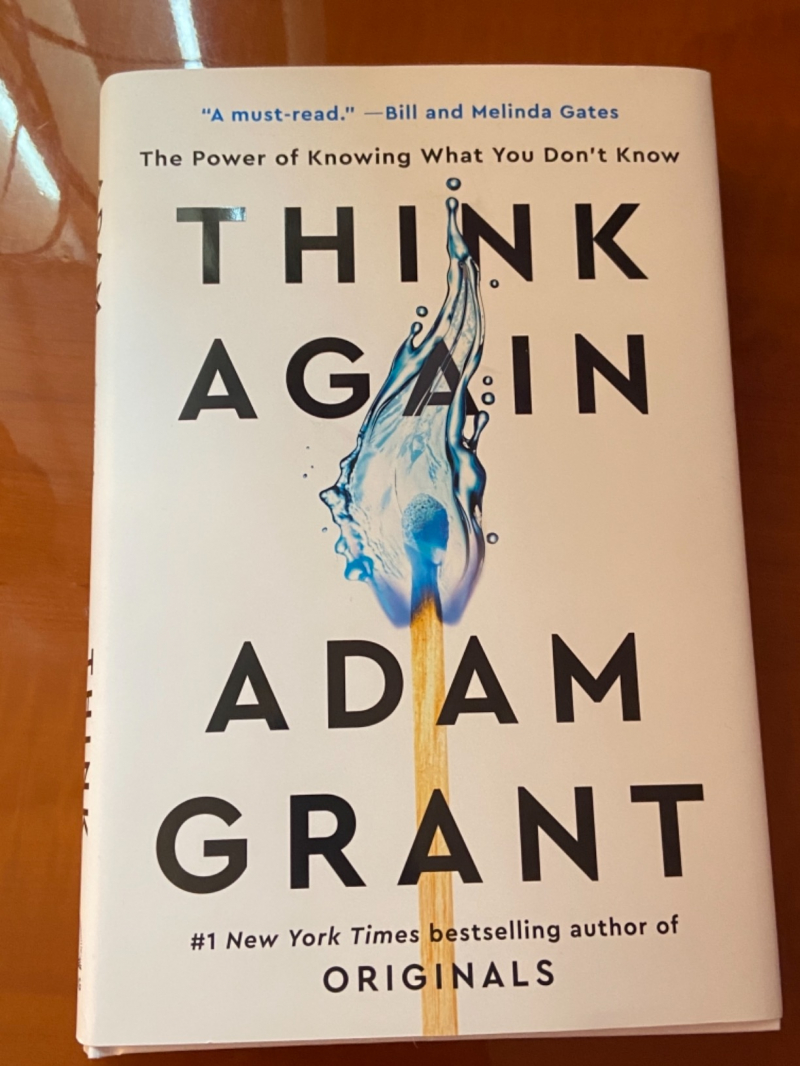
https://www.amazon.com/ -
Hans Rosling was a physician, international health lecturer, and well-known public speaker. He served as a consultant to the World Health Organization and UNICEF, and he co-founded Médecins Sans Frontières in Sweden and the Gapminder Foundation.
Hans' son and daughter-in-law, Ola Rosling and Anna Rosling Rönnlund, co-founded the Gapminder Foundation, with Ola serving as its director from 2005 to 2007 and again from 2010 to the present.
We consistently get the answers wrong when asked simple questions regarding global trends, such as what percentage of the world's population lives in poverty, why the world's population is expanding, and how many females finish school. So incorrect that a monkey answering questions at random will routinely outperform professors, journalists, Nobel laureates, and investment bankers.
In Factfulness, Hans Rosling, Professor of International Health and global TED phenomenon, and his two long-time partners, Anna and Ola, give a startling new explanation for why this occurs. They expose the ten inclinations that distort our perspective, ranging from our proclivity to divide the world into two camps (typically some form of us and them) to how we consume media (where fear reigns) to how we see progress (believing that most things are getting worse).
Our issue is that we don't know what we don't know, and our best predictions are influenced by unconscious and predictable biases.
It turns out that, despite its flaws, the planet is in far better shape than we may believe. That isn't to say there aren't legitimate worries. However, if we worry about everything all the time rather than accepting a worldview based on facts, we may lose our ability to focus on the things that endanger us the most.
Among the best books on cognitive biases, Factfulness is an urgent and necessary book that will change the way you see the world and empower you to respond to future crises and opportunities. It is inspiring and revelatory, filled with lively anecdotes and moving stories.
Author: Hans Rosling, Ola Rosling and Anna Rosling Rönnlund
Link to buy: https://www.amazon.com/dp/1250107814?tag=uuid10-20
Ratings: 4.6 out of 5 stars (from 13921 reviews)
Best Sellers Rank: #14,264 in Books
#21 in Probability & Statistics (Books)
#22 in Statistics (Books)
#76 in Medical Cognitive Psychology
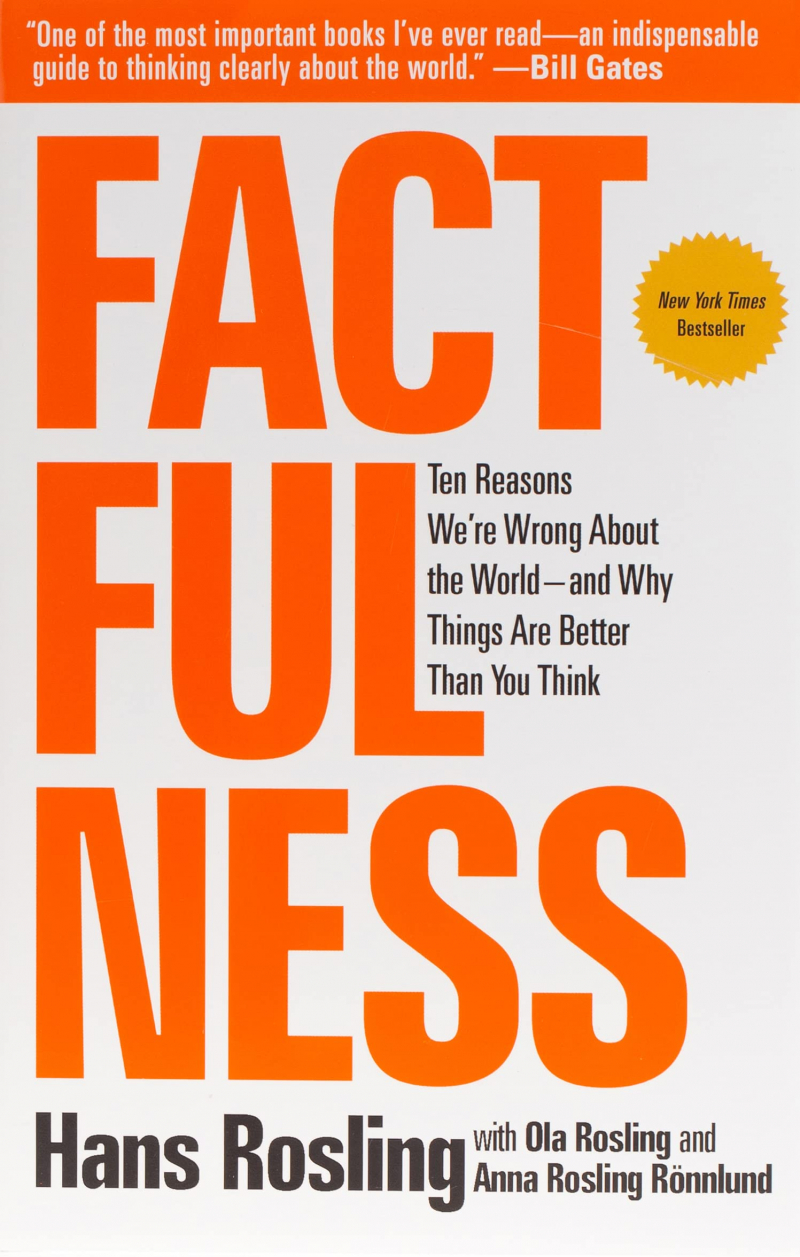
https://www.amazon.com/ 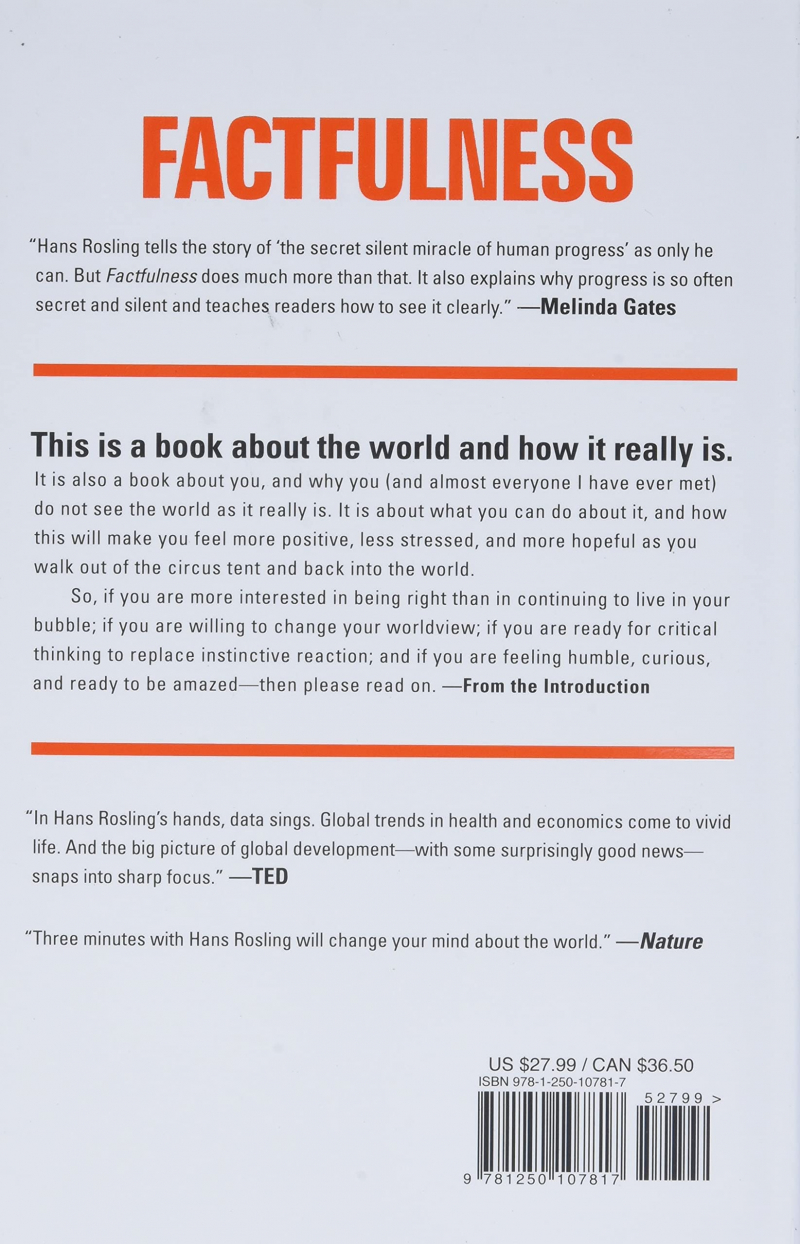
https://www.amazon.com/















